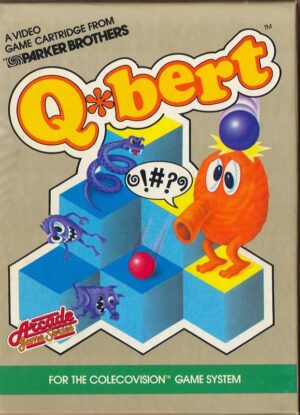Retro Replay Review
Gameplay
Tron: Solar Sailer places you directly in Flynn’s shoes, challenging you to navigate a series of digital tracks toward the heart of the MCP. The core of the experience is divided into two distinct stages, each testing different skills. In the first stage, you’re handed an access code via the Intellivoice unit. You must mentally note that code, then pilot the solar sailer along twisting tracks, dodging tanks and recognizers in a bid to reach Track 0.
(HEY YOU!! We hope you enjoy! We try not to run ads. So basically, this is a very expensive hobby running this site. Please consider joining us for updates, forums, and more. Network w/ us to make some cash or friends while retro gaming, and you can win some free retro games for posting. Okay, carry on 👍)
Track navigation is a delicate balance between offense and resource management. Every move forward and every shot at pursuing enemies chips away at your track’s energy. You’ll keep a close eye on “energy bugs” dotting the grid, or listen for the voice warning that you’re running on empty. Switch tracks at the right moment to refill energy, or risk coming to a halt and losing the game altogether.
The second stage plunges you inside the MCP itself. Here, 0s and 1s fly at you in a first-person view, while an in-game voice reads out the override code in binary. You use a cursor to capture the right bits and place them in sequence via the number pad. Red bits randomly fill in parts of your code, ratcheting up the tension. It’s a race against the clock—enter the full code correctly to overload the MCP and escape.
Once the MCP is overloaded, Solar Sailer offers “Overtime Mode,” essentially a survival challenge for bonus points. You fend off endless data transmissions, keeping your cursor aligned to block incoming streams. It’s a tough test of reflexes and memory, but it extends replay value for those chasing high scores.
Graphics
While Tron: Solar Sailer doesn’t push the envelope by today’s standards, the Intellivision hardware renders a convincing digital landscape. Tracks are displayed with clear, contrasting lines, making it easy to distinguish between lanes as you weave past enemies. The simplicity of the design echoes the stark aesthetic of the original Tron film, lending authenticity to the experience.
Enemy sprites—tanks and recognizers—are recognizable and animate smoothly as they pursue your sailer. Though color depth is limited, the flashing lights and rapidly moving bits in Stage 2 create a sense of urgency. It’s a minimalist approach, but one that fits the game’s computer-world theme perfectly.
The Intellivoice unit, while not strictly visual, adds an audio dimension that complements the graphics. Hearing the access code spoken aloud enhances immersion, and the warning that “Energy is low” is far more atmospheric coming from a dedicated voice chip rather than on-screen text. Visually and aurally, Solar Sailer punches above its weight.
Story
Tron: Solar Sailer borrows its premise straight from the cult-classic film TRON. You assume the role of Kevin Flynn, digitized into the computer world and tasked with overthrowing the MCP. The narrative is simple but effective: find and overload the Master Computer Program to return to reality.
The game’s storytelling is entirely gameplay-driven, with the Intellivoice unit providing critical plot beats. There’s no cutscene or dialogue tree—just you, your sailer, and the formidable pact of enemies determined to keep you trapped. This brevity keeps the action tight and focused, though fans of deeper lore might crave more narrative flourishes.
Despite its minimalist storytelling, Solar Sailer captures the essence of Tron’s themes: man versus machine, high-stakes digital warfare, and the triumph of ingenuity. Each victory feels like a small step toward cinematic heroism, reinforcing the tie to the beloved movie.
Overall Experience
Tron: Solar Sailer is a must-play for Intellivision collectors and fans of old-school arcade-style challenges. The combination of track-based shooting and puzzle-like code entry offers a unique two-stage structure rarely seen on consoles of that era. It’s both a test of memory and reflexes, with enough variety to keep you coming back.
The inclusion of the Intellivoice add-on elevates the experience, making Solar Sailer feel more interactive than many cartridge-only titles. Hearing a disembodied voice guide you through access codes and energy warnings adds a level of immersion that still impresses decades later.
Although the graphics are rudimentary by modern standards, they perfectly evoke the Tron universe’s neon grid and digital corridors. The gameplay may present a steep learning curve, especially in Stage 2’s timed bit-catching frenzy, but those willing to master it will find a richly rewarding challenge. In the end, Tron: Solar Sailer stands as a distinctive retro gem, blending strategy, action, and novelty audio into a cohesive—and surprisingly deep—gaming experience.
 Retro Replay Retro Replay gaming reviews, news, emulation, geek stuff and more!
Retro Replay Retro Replay gaming reviews, news, emulation, geek stuff and more!









Reviews
There are no reviews yet.